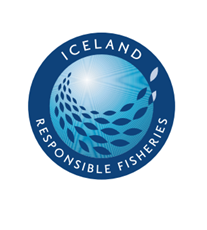Raw material
To produce its pure, high-quality chitosan, Primex receives the shells from shrimp that are caught in the clean, cold North Atlantic Ocean. The catches are carefully regulated by a quota system to guarantee rational exploitation of the stocks and a sustainable balance in the marine environment.

Analysis of key parameters, like solubility, density, DDA, viscosity, turbidity, ash content and high fat-binding capacity, show that Primex products correspond in every aspect to the best quality on the market. Moreover, our data show that the high fat-binding capacity of the Primex products outperforms all other products analyzed so far.
Iceland Responsible Fisheries
Management of the fishing grounds around Iceland is based on allocating a fixed share of the permitted catch of the various species to each vessel. The government works constantly to ensure self-sustaining utilization of the natural resources. All decisions are based on scientific criteria and the careful work of the Marine Research Institute.
Icelandic fishery scientists are members of international scientific organisations and their work and methods are constantly evaluated to ensure conformity with demands that meet international scientific criteria.
Protection of the fish in Iceland's fishing grounds is based on three main methods:
- Catch regulations, which are developed for each utilizable fish stock. This involves deciding yearly how large a proportion of the stocks may be allocated for fishing.
- Regulations controlling the fishing gear. Emphasis is placed on the efficacy of the equipment used, which means that effort is made to fish only those species and sizes that are sought.
- Protection and closing of specific areas. This means that use of certain equipment is banned in specific areas or the area is completely closed to fishing. This is done to protect, for example, spawning fish or juvenile fish.
In August 2007, Iceland issued a Statement on Responsible Fisheries in Iceland. This statement was signed by the Minister of Fisheries, the Director of the Marine Research Institute, the Director of Fisheries and the Chairman of the Fisheries Association of Iceland. An identification of Icelandic seafood products, produced from catches in Icelandic waters was issued with the logo shown below.

Fisheries stakeholders have also decided, with the support of the government, to request third-party certification by an independent, internationally recognized, accredited certification body to confirm that Iceland pursues responsible fisheries. Responsibility for the project rests with the Fisheries Association of Iceland.
Further information on the fisheries management in Iceland and fish stocks: www.responsiblefisheries.is
